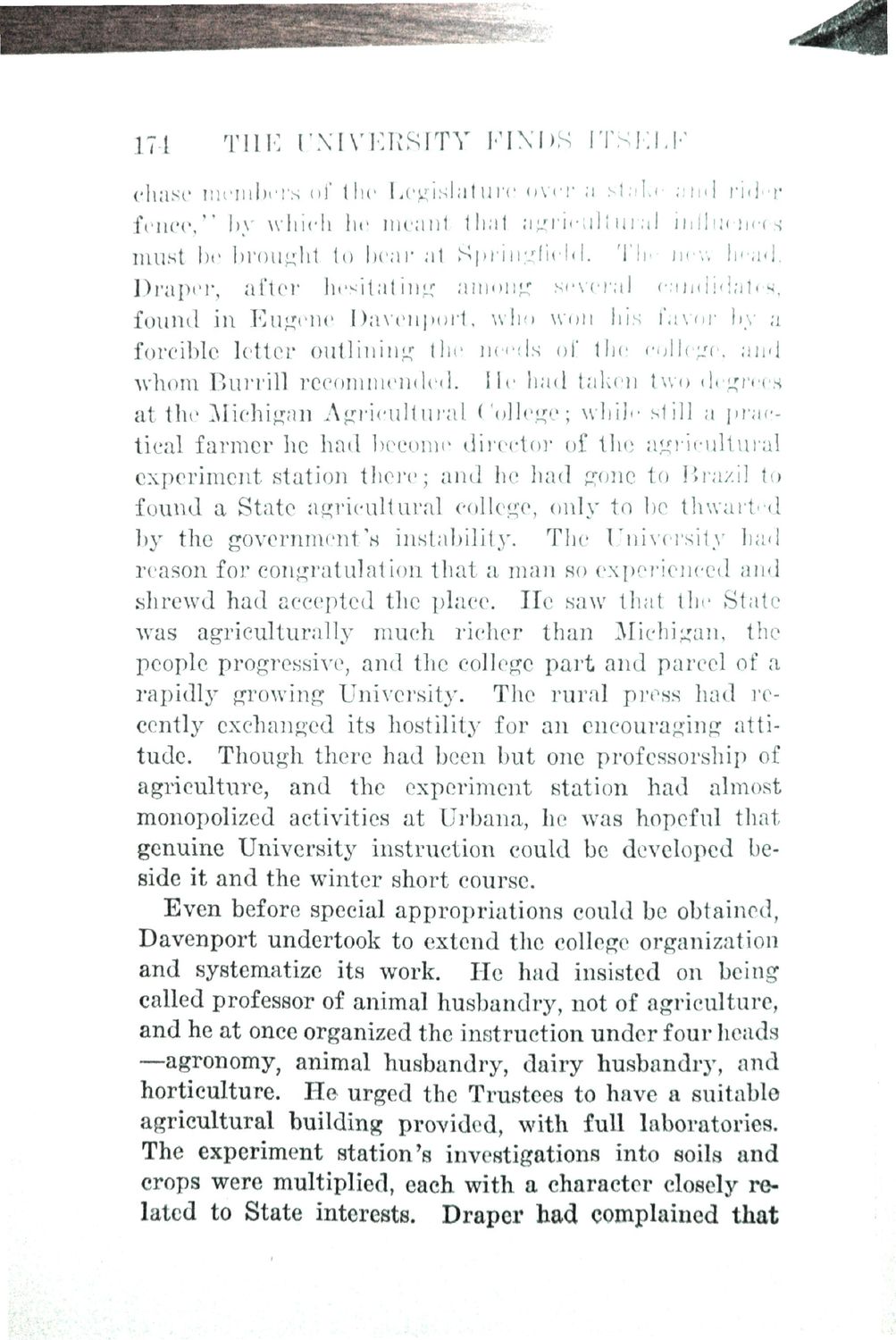| |
| |
Caption: Book - History of the University (Nevins)
This is a reduced-resolution page image for fast online browsing.

EXTRACTED TEXT FROM PAGE:
174 THE UNIVERSITY FINDS ITSELF chase members of the Legislature over a stake and rider fence," by which he meant that agricultural influences must be brought to bear at Springfield. The new head, Draper, after hesitating among several candidates, found in Eugene Davenport, who won his favor by a forcible letter outlining the needs of the college, and whom Burrill recommended. He had taken two degrees at the Michigan Agricultural College; while still a practical farmer he had become director of the agricultural experiment station there; and he had gone to Brazil to found a State agricultural college, only to be thwarted by the government's instability. The University had reason for congratulation that a man so experienced and shrewd had accepted the place. He saw that the State was agriculturally much richer than Michigan, the people progressive, and the college part and parcel of a rapidly growing University. The rural press had recently exchanged its hostility for an encouraging attitude. Though there had been but one professorship of agriculture, and the experiment station had almost monopolized activities at Urbana, he was hopeful that genuine University instruction could be developed beside it and the winter short course. Even before special appropriations could be obtained, Davenport undertook to extend the college organization and systematize its work. He had insisted on being called professor of animal husbandry, not of agriculture, and he at once organized the instruction under four heads —agronomy, animal husbandry, dairy husbandry, and horticulture. He urged the Trustees to have a suitable agricultural building provi|§cl, with full laboratories. The experiment sta&n's instigations into soils and crops were multipli||t, each with a character closely related to State interests. Draper had complained that
| |